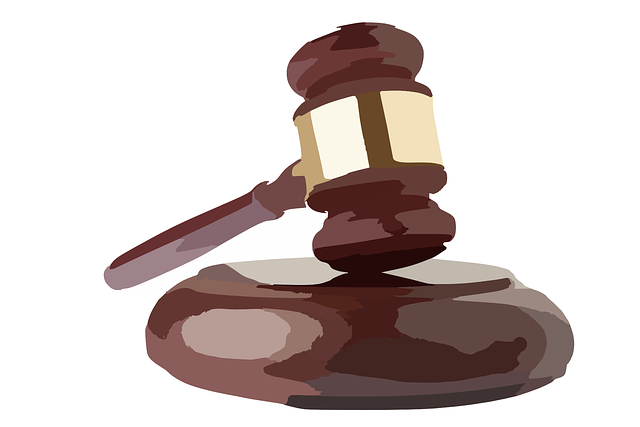Contempt of court, a serious legal issue, involves non-compliance with valid orders, emphasizing the need for enforcing judgments. Effective contempt legal strategies include hearings, subpoenas, incarceration, garnishment, seizure of property, and receivership to ensure compliance, deter future violations, and uphold judicial respect. Navigating these proceedings requires strategically identifying willful non-compliance, filing detailed motions, presenting cases at hearings, and accepting the judge's decisions, which may include fines or imprisonment. These strategies are crucial for maintaining public trust in the justice system.
Enforcing legal judgments is a vital aspect of ensuring justice and maintaining the integrity of our court system. However, contempt of court often goes unnoticed, leading to non-compliance and unresolved disputes. This article delves into the world of legal enforcement, guiding readers through understanding contempt, exploring effective strategies, and navigating the process step-by-step. By equipping individuals with knowledge on these key aspects, we empower them to advocate for their rights and ensure that legal judgments are respected and adhered to.
- Understanding Contempt of Court: When Legal Judgments Go Unenforced
- Strategies for Effective Enforcement: Legal Tools at Your Disposal
- Navigating Contempt Proceedings: A Step-by-Step Guide
- The Impact of Non-Compliance: Consequences and Remedies
Understanding Contempt of Court: When Legal Judgments Go Unenforced

Contempt of court is a serious legal issue that arises when an individual or entity fails to comply with a valid court order. It’s a crucial concept to understand in advocating for the enforcement of legal judgments, as it highlights the consequences of defying judicial authority. When a judgment goes unenforced, it can lead to a finding of contempt, which gives the court power to impose sanctions on the non-compliant party.
Legal strategies to address contempt of court involve various approaches, such as holding hearings, issuing subpoenas, and even jailing those who willfully violate court orders. These measures aim to ensure that legal judgments are respected and enforced, upholding the integrity of the judicial system.
Strategies for Effective Enforcement: Legal Tools at Your Disposal

When advocating for the enforcement of legal judgments, it’s crucial to understand the array of legal tools at your disposal. One powerful strategy is leveraging contempt of court actions. Contempt of court occurs when an individual fails to comply with a court order, and it can be used to enforce various aspects of a judgment, such as payment of arrears or specific performance of contractual obligations. This approach not only ensures respect for the judiciary but also serves as a deterrent for future non-compliance.
Additionally, other effective enforcement strategies include garnishment of wages or assets, seizure of property, and the appointment of receivers. Garnishment is a process where a portion of an individual’s income or bank accounts is diverted to satisfy a debt. Seizure of property involves taking physical assets to cover outstanding judgments, while the appointment of a receiver allows a neutral third party to manage and sell off non-compliant parties’ assets for distribution to creditors. These legal tools offer comprehensive solutions, ensuring that judgments are not only met but also providing a framework for ongoing compliance.
Navigating Contempt Proceedings: A Step-by-Step Guide

Navigating Contempt Proceedings involves a strategic approach to ensure legal judgments are enforced effectively. The process begins with identifying willful non-compliance by a party, often evidenced through uncooperative behavior or repeated failures to adhere to court orders. Next, filing a motion for contempt with the appropriate court is crucial, detailing the specific violations and their impact. Here, presenting solid evidence and legal arguments becomes paramount; strategic use of documents, witness testimonies, and legal precedents can strengthen your case.
Once filed, the court will schedule a hearing where both parties present their sides. Effective legal strategies during this phase include demonstrating harm caused by the contemptuous acts and proposing remedies, such as fines or specific performance. The judge’s decision, ranging from fines to incarceration, depends on the severity of the offense and the party’s history of compliance. Understanding these steps and employing appropriate legal strategies are essential for successfully navigating contempt proceedings.
The Impact of Non-Compliance: Consequences and Remedies

Non-compliance with legal judgments can have significant and far-reaching consequences for individuals, businesses, and even entire industries. When a party fails to adhere to a court order, it not only undermines the integrity of the justice system but also creates uncertainty and instability in various sectors. The impact can be severe, leading to financial losses, damage to reputations, and potential legal repercussions. Contempt of court is a serious matter that can result in fines, imprisonment, or both, depending on the jurisdiction and the nature of the offense.
Remedies for non-compliance exist to ensure that legal judgments are enforced and respected. Legal strategies such as contempt proceedings allow courts to assert their authority and hold parties accountable. These remedies serve as a powerful deterrent, encouraging compliance with court orders. In cases of deliberate non-compliance, lawyers can employ various tactics, including motion practices, asset seizures, or even third-party interventions, to secure the enforcement of judgments. Effective enforcement not only protects the rights of aggrieved parties but also reinforces the rule of law and maintains public trust in the judicial system.
